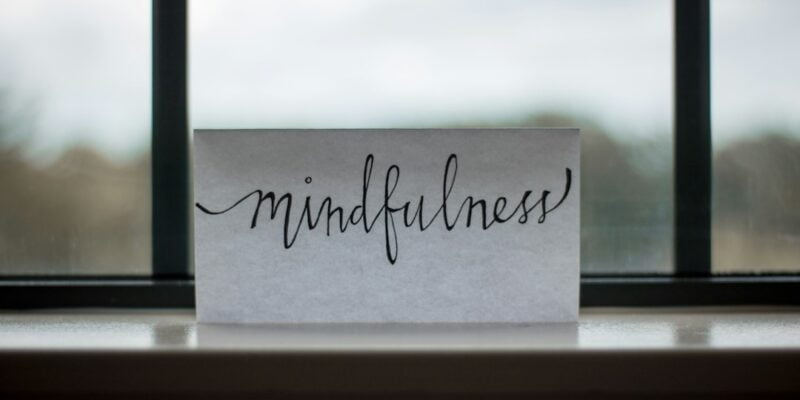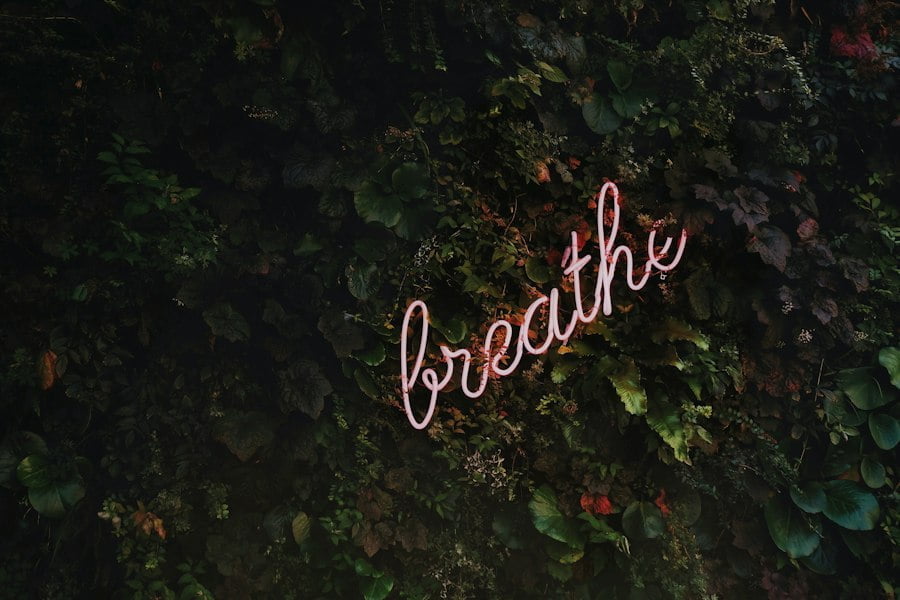
10 Must-Have Mental Health and Self-Care Apps for a Happier Life
In today’s fast-paced world, it is becoming increasingly important to prioritize mental health and practice self-care. With the constant demands and pressures of work, relationships, and daily life, it is easy to neglect our mental well-being. However, taking care of our mental health is crucial for overall well-being and happiness.
Mental health encompasses our emotional, psychological, and social well-being. It affects how we think, feel, and act. When our mental health is compromised, it can have a negative impact on our physical health, relationships, and overall quality of life. On the other hand, when we prioritize our mental health and practice self-care, we can experience numerous benefits such as improved mood, increased resilience to stress, better relationships, and enhanced productivity.
Key Takeaways
- Mental health and self-care are important for overall well-being.
- Mental health apps are popular due to their convenience and accessibility.
- Mental health apps can supplement therapy, but they are not a replacement.
- Top mental health apps include Headspace, Calm, Moodfit, Happify, Sanvello, Pacifica, MyFitnessPal, Sleep Cycle, Forest, and Daylio.
- Using mental health and self-care apps can improve your life by promoting mindfulness, reducing stress, tracking mood and habits, boosting happiness, managing anxiety and depression, tracking nutrition and exercise, improving sleep, staying focused and productive, and promoting self-reflection.
The Rise of Mental Health Apps: Why They’re So Popular
In recent years, there has been a significant rise in the popularity of mental health apps. These apps provide individuals with convenient and accessible tools to manage their mental health and practice self-care. One of the main reasons for their popularity is the convenience they offer. With mental health apps, individuals can access resources and support whenever and wherever they need it. This is particularly beneficial for those who may not have access to traditional therapy or counseling services due to financial constraints or geographical limitations.
Another reason for the popularity of mental health apps is their accessibility. Many people find it difficult to seek professional help due to stigma or fear of judgment. Mental health apps provide a safe and anonymous space for individuals to explore their emotions and seek support without any judgment. Additionally, these apps often offer a wide range of features such as guided meditations, mood tracking, journaling prompts, and coping strategies that can be tailored to individual needs.
Mental Health Apps vs. Therapy: What’s the Difference?
While mental health apps can be a valuable tool for managing mental health and practicing self-care, it is important to understand the difference between using these apps and seeking professional help through therapy or counseling. Mental health apps are not a substitute for therapy, but rather a complementary tool that can be used in conjunction with professional help.
Therapy involves working with a trained mental health professional who can provide personalized guidance, support, and interventions based on an individual’s specific needs. Therapy sessions typically involve face-to-face interactions or online video sessions where individuals can explore their thoughts, emotions, and behaviors in a safe and confidential environment. Therapists can provide evidence-based interventions and techniques to help individuals manage their mental health challenges and develop healthy coping strategies.
On the other hand, mental health apps provide individuals with self-help resources and tools that they can use on their own. These apps often offer features such as guided meditations, mood tracking, journaling prompts, and coping strategies that individuals can access at their own convenience. While these apps can be helpful in managing day-to-day stressors and promoting self-care, they may not be suitable for individuals with more complex mental health issues or those in need of intensive therapeutic interventions.
Top 10 Must-Have Mental Health and Self-Care Apps
| App Name | Description | Features | Price |
|---|---|---|---|
| Headspace | Meditation and mindfulness app | Guided meditations, sleep sounds, breathing exercises | Free trial, then 12.99/month or 69.99/year |
| Calm | Meditation and sleep app | Guided meditations, sleep stories, breathing exercises | Free trial, then 14.99/month or 69.99/year |
| Talkspace | Online therapy app | Unlimited messaging with a licensed therapist, video sessions available | 65-99/week depending on plan |
| Breathing Zone | Breathing exercise app | Guided breathing exercises, customizable settings | 3.99 |
| Happify | Positive psychology app | Activities and games to improve mood and reduce stress | Free trial, then 14.99/month or 139.99/year |
| Daylio | Mood tracking app | Track mood and activities, set reminders | Free, with in-app purchases |
| MyFitnessPal | Health and fitness app | Track food and exercise, set goals | Free, with premium options |
| Healium | Virtual reality app | Uses VR to reduce stress and anxiety | 9.99/month or 69.99/year |
| Sanvello | Mental health app | Mood tracking, guided meditations, cognitive behavioral therapy exercises | Free trial, then 8.99/month or 53.99/year |
| Simple Habit | Meditation app | Guided meditations, personalized recommendations | Free trial, then 11.99/month or 89.99/year |
1. Headspace: The Ultimate Mindfulness App
Headspace is a popular mindfulness app that offers guided meditations, sleep sounds, and mindfulness exercises to help users reduce stress, improve focus, and cultivate a sense of calm. Mindfulness meditation has been shown to have numerous benefits for mental health, including reduced anxiety and depression symptoms, improved emotional regulation, and increased overall well-being.
2. Calm: The App for Stress and Anxiety Relief
Calm is another popular app that focuses on stress and anxiety relief. It offers guided meditations, sleep stories, breathing exercises, and relaxing music to help users manage stress and anxiety. Chronic stress and anxiety can have detrimental effects on mental health, so finding effective ways to manage and reduce these symptoms is crucial.
3. Moodfit: The App for Tracking Your Mood and Habits
Moodfit is an app that allows users to track their mood, habits, and activities to gain insights into their mental health and well-being. By tracking their mood and habits, users can identify patterns and triggers that may be impacting their mental health. This app also provides resources and tools for improving mental health, such as guided meditations and coping strategies.
4. Happify: The App for Boosting Your Happiness
Happify is an app that focuses on boosting happiness and well-being through evidence-based activities and interventions. It offers various games, activities, and exercises that are designed to promote positive emotions, gratitude, resilience, and overall happiness. Research has shown that cultivating positive emotions can have a significant impact on mental health and well-being.
5. Sanvello: The Comprehensive Mental Health App
Sanvello is a comprehensive mental health app that offers a range of features to help users manage their mental health. It includes tools for mood tracking, guided meditations, coping strategies, goal setting, and peer support. This app is particularly beneficial for individuals with anxiety or depression as it provides evidence-based interventions and support.
6. Pacifica: The App for Managing Anxiety and Depression
Pacifica is an app specifically designed for individuals with anxiety or depression. It offers tools for mood tracking, guided self-help exercises, relaxation techniques, and peer support. This app can be a valuable resource for individuals looking to manage their anxiety or depression symptoms on a day-to-day basis.
7. MyFitnessPal: The App for Tracking Your Nutrition and Exercise
While not specifically a mental health app, MyFitnessPal can be a valuable tool for managing mental health through nutrition and exercise. Research has shown that proper nutrition and regular exercise can have a significant impact on mental health and well-being. MyFitnessPal allows users to track their nutrition and exercise, set goals, and access a database of healthy recipes and workout routines.
8. Sleep Cycle: The App for Better Sleep
Sleep Cycle is an app that focuses on improving sleep quality. Poor sleep can have a negative impact on mental health, leading to increased stress, anxiety, and depression symptoms. Sleep Cycle uses sound analysis and sleep tracking to wake users up during their lightest sleep phase, ensuring they wake up feeling refreshed and energized.
9. Forest: The App for Staying Focused and Productive
Forest is an app that helps users stay focused and productive by encouraging them to stay off their phones and other distractions. It uses a gamified approach where users plant virtual trees that grow when they stay focused on their tasks. This app can be particularly helpful for individuals struggling with procrastination or difficulty staying focused.
10. Daylio: The App for Journaling and Self-Reflection
Daylio is a journaling app that allows users to track their mood, activities, and thoughts on a daily basis. It provides customizable mood tracking options and prompts for self-reflection. Journaling and self-reflection have been shown to have numerous benefits for mental health, including increased self-awareness, improved emotional regulation, and reduced stress.
How Mental Health and Self-Care Apps Can Improve Your Life
In conclusion, mental health and self-care apps can be valuable tools for managing mental health and promoting overall well-being. These apps offer convenience and accessibility, allowing individuals to access resources and support whenever and wherever they need it. While they are not a substitute for therapy or counseling, they can complement professional help by providing individuals with self-help resources and tools.
The top 10 mental health and self-care apps mentioned in this article offer a range of features that can help individuals manage their mental health challenges and practice self-care. From mindfulness meditation to mood tracking and journaling, these apps provide a variety of tools and resources to support mental well-being. By incorporating these apps into their daily lives, individuals can take proactive steps towards improving their mental health and overall quality of life.
FAQs

What are mental health and self-care apps?
Mental health and self-care apps are mobile applications designed to help individuals manage their mental health and well-being. These apps offer a range of features, including meditation exercises, mood tracking, and stress management techniques.
How do mental health and self-care apps work?
Mental health and self-care apps work by providing users with tools and resources to manage their mental health and well-being. These apps may offer guided meditations, breathing exercises, and other techniques to help users reduce stress and anxiety.
Are mental health and self-care apps effective?
Research suggests that mental health and self-care apps can be effective in improving mental health outcomes. However, the effectiveness of these apps may vary depending on the individual and the specific app being used.
What are some popular mental health and self-care apps?
Some popular mental health and self-care apps include Headspace, Calm, and Moodfit. These apps offer a range of features, including guided meditations, mood tracking, and stress management techniques.
Are mental health and self-care apps a substitute for professional mental health treatment?
While mental health and self-care apps can be helpful in managing mental health and well-being, they are not a substitute for professional mental health treatment. Individuals experiencing mental health concerns should seek the guidance of a mental health professional.


















